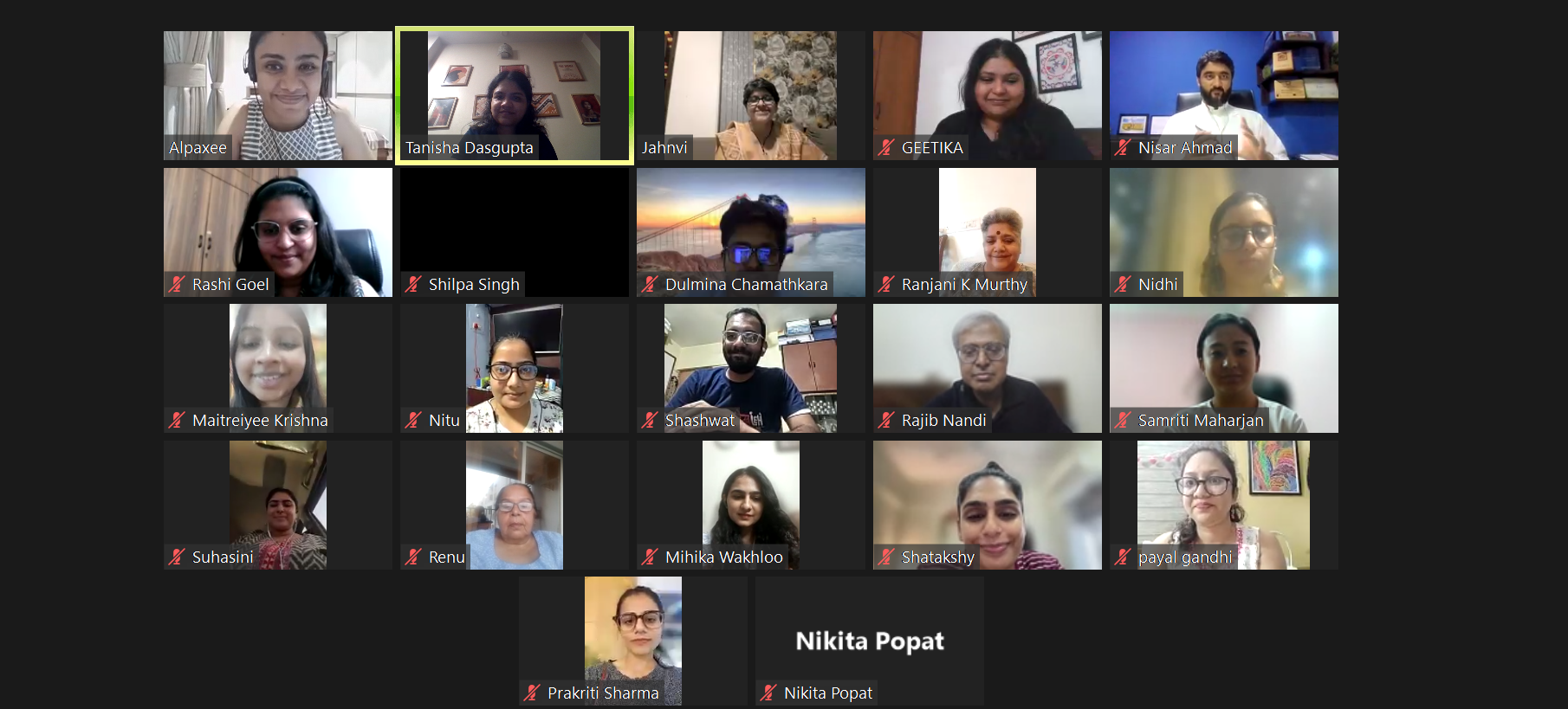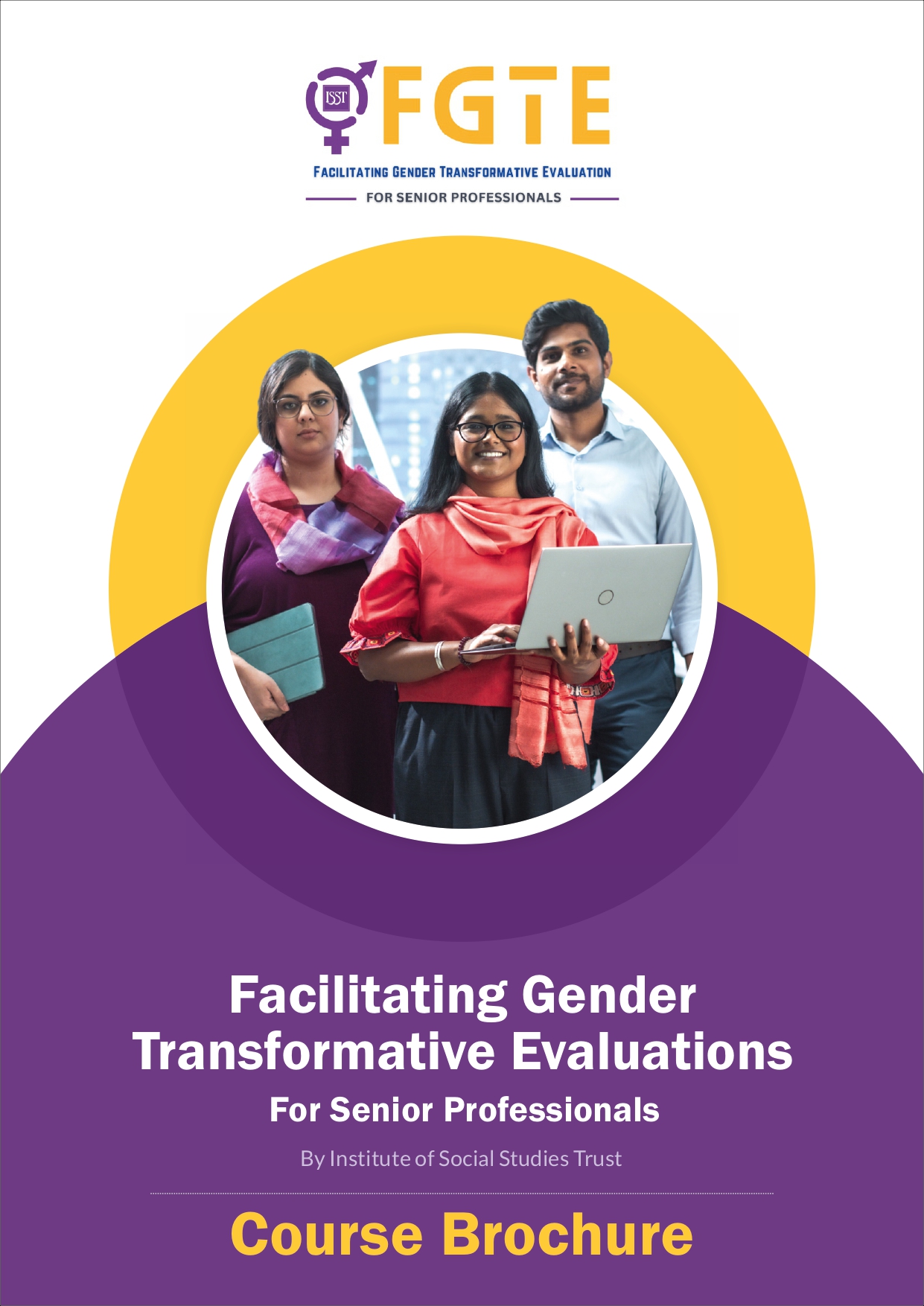Capacity building
With years of experience in development research, capacity building through online and offline courses was thought of as an impactful way of creating change and taking the organisation's experience and learnings forward. The organisation launched its first course on Facilitating Gender Transformative Evaluation in 2018 and since then have continued with multiple iterations of the course as well as new courses on Women and Work: Making it Count and FGTE for Senior Professionals.
FACILITATING GENDER TRANSFORMATIVE EVALUATIONS 2.0
To download the Course brochure, Click here.

WOMEN AND WORK: MAKING IT COUNT
The course, ‘Women & Work: Making It Count’ was developed with the intent to bring forth the trajectory of women’s work in the larger discourse of economy as well as to reflect on how research and data can be critically used to teach, show and question the presence and absence (inclusion and exclusion) of women workers in the economy.
-
Stage 1: Introductory Self-Paced Course
A Flexible and introductory, self-paced course that allows participants to learn at their own pace. This course will help to equip the participants with elementary and foundational concepts required to understand the story of women and work. -
Stage 2: Advanced Online Course
An 8-10 week facilitated online course that delves into complex issues through interactive learning and guided discussions. Ideal for those looking to build a comprehensive understanding and apply insights in real-world contexts. -
Stage 3: Immersive Residential Workshop
A 2-3 day residential workshop featuring hands-on activities, discussions, and networking. This final phase synthesizes learnings from earlier stages, helping participants integrate the Women and Work approach into personal and professional settings.

FACILITATING GENDER TRANSFORMATIVE EVALUATIONS (FGTE) FOR SENIOR PROFESSIONALS
The course, a continuation of our flagship course FGTE, has been designed in response to the demand that came from the community. During the six iterations of the FGTE course, we received numerous applications from professionals with 10+ years of experience who wanted to learn more about Gender Transformative Evaluations. It is in response to this clear demand emerging from the field that ISST decided to develop a new course that would cater to the needs of professionals with some experience of working in the field of evaluation or in the field of gender. The FGTE SP stream, scheduled from October 2024 to January 2025, currently has 46 enrolled participants.
The objectives of this course are:
• To sharpen the gender transformative lens to development
• To enhance gender transformative evaluation knowledge and skills
• To strengthen implementation of gender transformative evaluations.
The course will introduce the participants to advanced concepts of gender and evaluation and will draw upon diverse frameworks, approaches, methodologies and tools to conduct gender transformative evaluation like Utilisation Focused Evaluation, Outcome Mapping, Real time Evaluation, Principle Focused Evaluation, Local Wisdom Evaluation, Equity Focused Evaluation, Developmental Evaluation, System-based Evaluation. The course will further help participants think about the elements, nuances and critical stages in designing, planning, implementing gender transformative evaluation and also understand the dynamics and accountability mechanism.
Here is the course brochure for you to know more.

